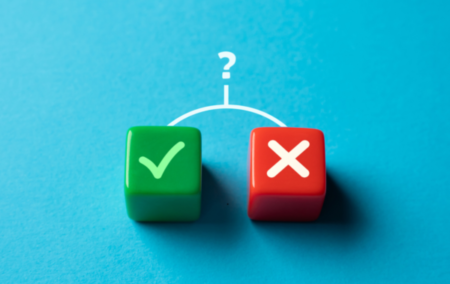Last month, I had the great pleasure of participating in the Global CQ Summit organized by the Cultural Intelligence Center and meeting a group of professionals highly engaged in the development of cultural intelligence across the globe. It was three amazing days of knowledge sharing among people from many countries and different backgrounds, where I had the honor to learn and obtain my certification from the greatest minds in the CQ domain.

With Linn Van Dyne, Ph.D., one of the pioneering researchers on cultural intelligence. CQ Global Summit 2024
As my thoughts around the discussions settle, I am reflecting that the conversation that resonated most with me personally was about intellectual honesty in our workplaces, communities, and societies.
Let’s talk about this today.
Intellectual honesty is a commitment to truthfulness and integrity in the pursuit and presentation of knowledge.
It involves several key principles:
- Truth-Seeking: Being genuinely committed to discovering the truth, even when it challenges one’s own beliefs or interests. This means prioritizing evidence and rational argument over personal biases.
- Transparency: Openly acknowledging the limitations of one’s knowledge and the potential biases in one’s reasoning. This includes disclosing any conflicts of interest and being honest about the sources of one’s information.
- Consistency: Applying the same standards of evidence and reasoning to all claims, regardless of whether they support or contradict one’s own views.
- Fairness: Giving a fair hearing to opposing viewpoints and considering them with an open mind. This means engaging with the strongest arguments from all sides, rather than misrepresenting or dismissing them without consideration.
- Acknowledgment of Errors: Willingness to admit mistakes and correct them. Intellectual honesty requires one to revise their views in light of new evidence or better arguments.
- Avoiding Misrepresentation: Ensuring that one does not distort or selectively present facts to support a preconceived position. This includes accurately representing the views of others and the evidence at hand.
Practicing intellectual honesty fosters trust and credibility, enhances critical thinking, and contributes to a more constructive and truthful discourse in any field of inquiry.
Practicing intellectual honesty is also liberating. I recall how my grandfather taught me at the age of 5 or 7: When you lie, you need to constantly remember what you said to whom and why. It becomes heavier and heavier over time as your lies pile in your head. Then they become so heavy that you crush under the weight of lies. Being honest is the easiest way to be honorable – he said.
Isn’t that true?

But the shifts we observe nowadays, in a world full of misleading information where style often trumps substance and fear of being perceived as incompetent pushes leaders and professionals to pretend they “know it all,” make intellectual honesty more of a theoretical commitment (“promise”) rather than a practical reality (“deliverable”).
Each act of intellectual dishonesty weakens our teams, communities, and society, causing more conflict and division.
Intellectual dishonesty significantly hinders efforts for our mutual cultural competence development. It perpetuates harmful stereotypes, deepens social polarization, and spreads misinformation, leading to discrimination, inequality, and reduced collaboration. In workplaces, it creates toxic environments, marginalizes diverse perspectives, and erodes trust, undermining productivity and cohesion. Communities suffer from exclusion, weakened social fabric, and heightened conflicts due to biased representations and ignored evidence.
I have lived in North America for 14 years now, and I have observed that over all these years, the vast majority of business articles from the most respected sources are still heavily written from the perspective of “The WEIRDEST People in the World,” without considering that Western, Educated, Industrialized, Rich, and Democratic culture is a complete outlier when compared to most other cultures in the world.
How do we imagine creating an inclusive society, community, or workplace if we are not honest and don’t accept that we don’t know or don’t understand other ways of thinking, feeling, and experiencing?

With David Livermore, PhD (Michigan State University) a social scientist devoted to the topics of cultural intelligence (CQ) and global leadership and the author of several award-winning books, including Leading with Cultural Intelligence, Driven by Difference, and Serving with Eyes Wide Open. His newest book, Digital, Diverse & Divided, addresses one of the most pressing issues of our day–how to overcome polarization in our personal and professional relationships.
During the summit, there was a moment of great reflection. All attendees were asked to join the group of the year when they discovered cultural intelligence for themselves. It was wonderful to witness how the community of certified cultural intelligence facilitators grew over the years from a couple of people to the huge community. It was such a great example of the progress of an “idea (and research and knowledge) worth spreading.”
I could not stop but constantly think at that moment – this is so beautiful that more and more professionals will be there to help people understand each other better, and we all need to start with a call for accountability with regards to intellectual honesty.
Otherwise, our efforts to raise global cultural intelligence for a while won’t be as effective as our humanity needs.
So, I encourage you today to ask these two questions:
- How transparent am I with myself and my team about the limitations of our collective knowledge on cultural issues, and how do I encourage open dialogue and critical examination of our assumptions and practices?
- How do I hold myself and my team accountable for intellectual dishonesty, particularly in how we represent and interact with diverse cultures, and what steps am I taking to ensure that our actions align with our stated values of inclusivity and respect?
Let’s be honest. It is long overdue for all of us to become true global citizens.
Let me know if my team and I can help.

